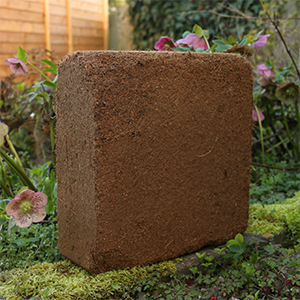
Choosing coir over peat: The environmental benefits of CoirProducts
For years, peat has been a popular choice in gardening and horticulture, known for its ability to retain moisture and support plant growth. But as
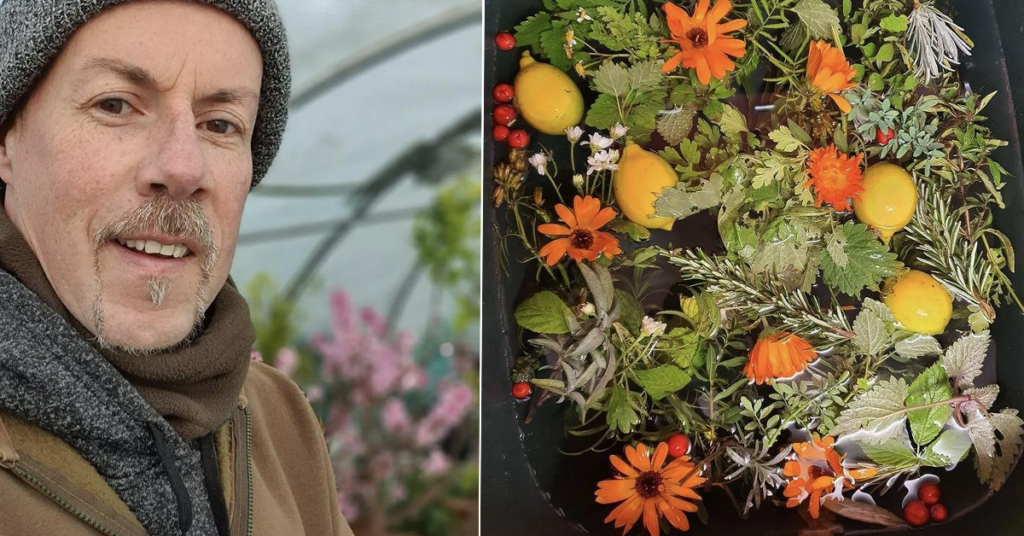
Meet our Featured Grower, @jays_permacultureallotment. In this blog post, Jason shares with us his gardening journey and how studying permaculture gave him invaluable insights into making the most of gardening. He talks about what he loves to grow and how he finds inspiration from nature. He also tells us how he turned some of his plots into a food forest, promoting a biodiverse system with them, and how he checks up on his allotment fox family. He goes on to share a series of tips and suggestions on how growers and gardeners can learn to work with nature. Read on to find out all about it.
How and when did you start gardening?
I have always enjoyed gardening, although I didn’t have much of an opportunity to really get into it due to the lack of a garden. However, around 5 ½ years ago I became vegan, and my mum said, ‘with the amount of veg you want to eat you should get an allotment’. She said this in jest but it was a light bulb moment for me. So after pestering the site manager for 5 months I finally got my first plot, that is where my real gardening journey began.
How has your garden grown since then?
Since taking on my first plot I gained another 1 full plot plus a half plot. I began studying permaculture which is where my eyes were really opened. The first plot is still more like a regular allotment plot, with the majority of it being no dig, however, with remaining plots, I have been turning them into a food forest, filled with perennial edibles including fruit trees and bushes, unusual tubers such as mashua, oca, Chinese yams and yacon etc. There are also edible vine crops, herbs (both medicinal and culinary), edible flowers, perennial onions and leeks, edible ground cover such as strawberries, framberries, funberries, as well as plants for the pollinators all working together to promote growth in a biodiverse system.
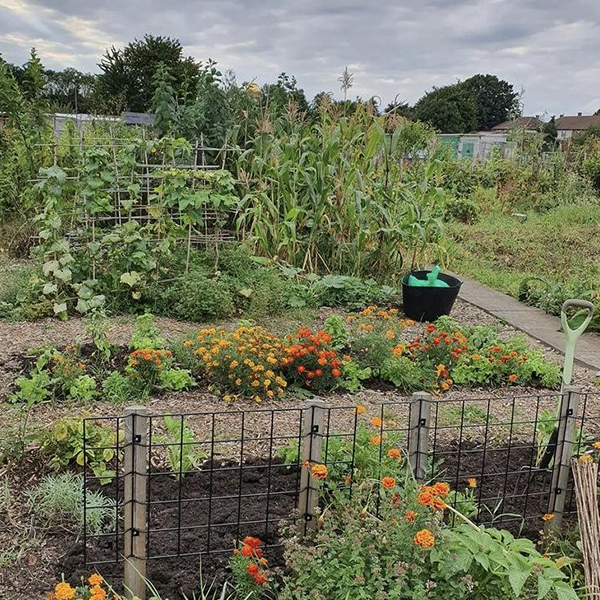
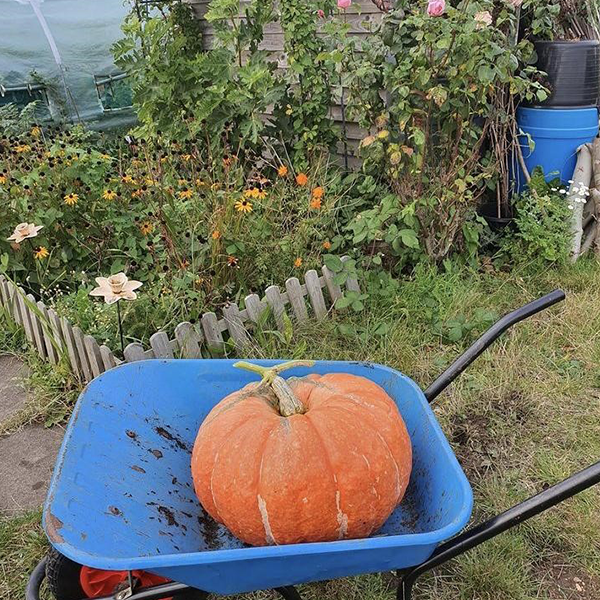
What do you like to grow? What are you growing at the moment?
I like to grow anything unusual, like citrus fruits (in my unheated polytunnel) and anything that is useful within the food forest system. So, as well as all of the regular crops such as tomatoes, aubergines, courgettes and garlic etc., I am also growing eddoe, ginger, sweet potato, asitaba, and mountain papaya to mention a few.
What has been your biggest gardening success?
Hmm, that has to be the food forest. It keeps evolving, it’s a living system and has things that I can harvest all year round with perennial brassicas etc. The best thing about it is, due to it being a perennial based system, it takes less work each year to maintain, and also gets more productive, so you get more time to enjoy it.
On the other hand, what do you find hard to grow? What gardening tasks/jobs do you find the most challenging?
The most challenging thing for gardening is the unsettled and unpredictable weather, so last year, for the first time, my tomato crops were wiped out by blight, this was due to such a wet summer. On the plus side, I hardly had to do any watering.
Also, due to a very rare medical condition called Multifocal Motor Neuropathy which I have had for 16 years, my muscular endurance, strength and balance and dexterity often pose a problem, each day is different and I just have to listen to my body, which again is why the permaculture food forest style works so well for me.
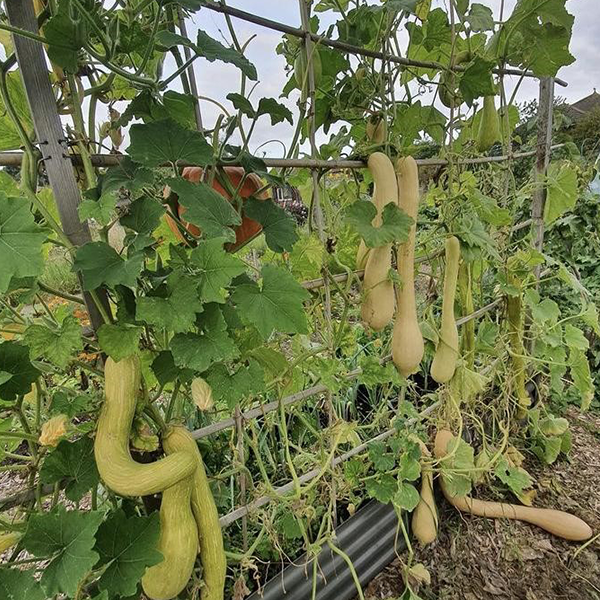
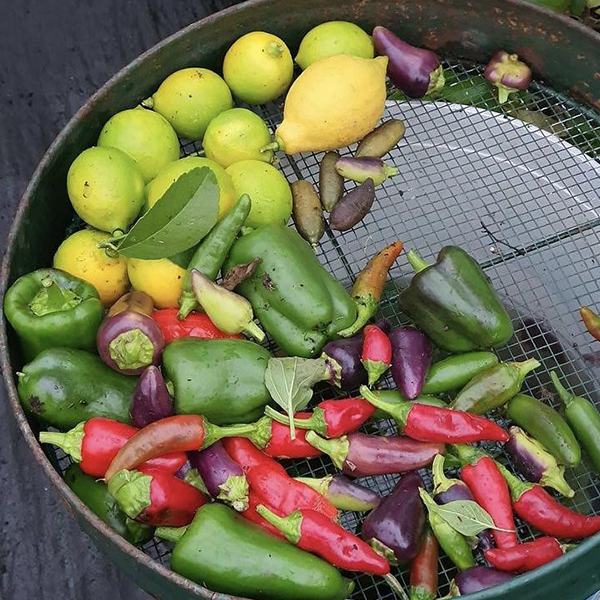
Who/what inspires you when it comes to gardening?
Nature inspires me constantly. Sometimes, we are so caught up in our lives that we miss out on our remarkable planet. Learning to work with nature rather than against it opens so many new doors, especially when it comes to growing.
What do you love about gardening? / What are some of the benefits of gardening?
I love how close gardening brings you to nature, the control that it gives you knowing that there have been no chemicals put into the ground or sprayed on the fruits and vegetables that you are consuming.
Gardening is the best way to disconnect from all of the negativity that we seem to be surrounded by. When I’m at my allotment, I am in my place of Zen, in a world of my creation.
Building a connection with your garden/plot really is the best medicine that money can’t buy, no antidepressant medication can relieve stress more than gardening. It’s also amazing for building a community of caring, sharing people.
Describe a typical day in the garden?
There is no such thing as a typical day in the garden and that’s why I love it.
I guess there are 2 things that I do daily, the first is to walk around my plots to check on everything, and it’s easier to deal with any issues, if you spot them as they are occurring rather than once they have time to progress and often become detrimental to your plants.
The second thing is to check on my allotment fox family, they are a very important part of my mini ecosystem, they help naturally keep the rodent population down and away from my crops, you will often see them walking around with me. I have their trust and they have mine.
Everything else I decide on the day.
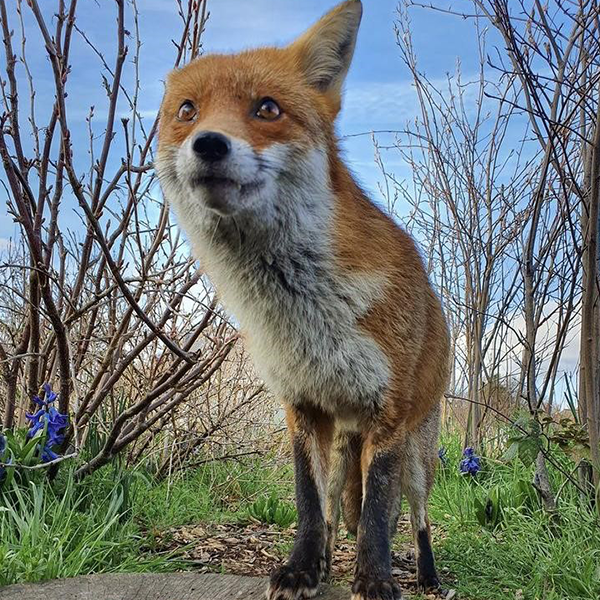
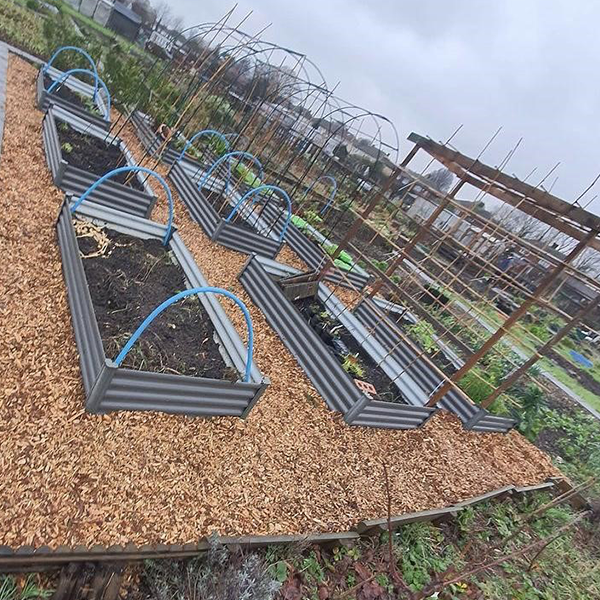
What are your plans for the garden/plot this year?
This year I’m adding even more plants, shrubs and trees into the food forest for even more biodiversity. I’m also going to try growing some mushrooms in there too.
More flowers will also be grown for cutting and for the pollinators not forgetting the uplifting colours to brighten the day.
Do you use any coir-based products? Would you like to share any experiences of using coir-based products?
The large coir blocks I find amazingly versatile, everything from seed sowing to making up your own potting mix. I also love to add it to my ground beds, to help with increasing moisture retention, also good for adding to heavy soils making it lighter for growing things like carrots, beetroots, garlic etc.
What tips would you like to share with other gardeners/growers?
Before you do any other job in the garden each day, do a walk around and observe. Observation is key to seeing what is and what’s not working. Gardening is not an exact science, sometimes a simple relocation can make a huge difference. Also knowing your soil type (this can vary dramatically from one section to another) is important.
Knowing how the sun shines in different areas of your garden at different times of the day will also help you position your plants for their best success.
Don’t be tempted to use chemicals and pesticides, look for natural ways of dealing with things, attract more beneficial insects to help deal with the not so welcome bugs, allow natural predators such as foxes deal with keeping any rodent population down.
Never use slug pellets, other animal’s end up being harmed in the food web cycle. Learn what they don’t like and use it to your advantage.
Before pulling weeds, check if they are actually beneficial to either the pollinators, your system (nitrogen fixers etc.) or to you. Many of what people today think of as weeds are actually more nutritious and flavourful than crops that they are growing, many also have added health/medicinal benefits.
Grow with biodiversity in mind, polyculture (mixture of plants) rather than monoculture (singular type crops) is better for the soil health and also more productive. Look into companion planting.
Before sowing seeds or planting anything out, read up on what that plant needs to thrive. Most failures are due to lack of knowledge. With the internet you can research any plant that exists, you can then ensure that you put it in the right place, in the correct type of soil, pH, drainage and nutrient, light, heat requirements.
Learn to work with nature, unsure how? Take a look at permaculture.
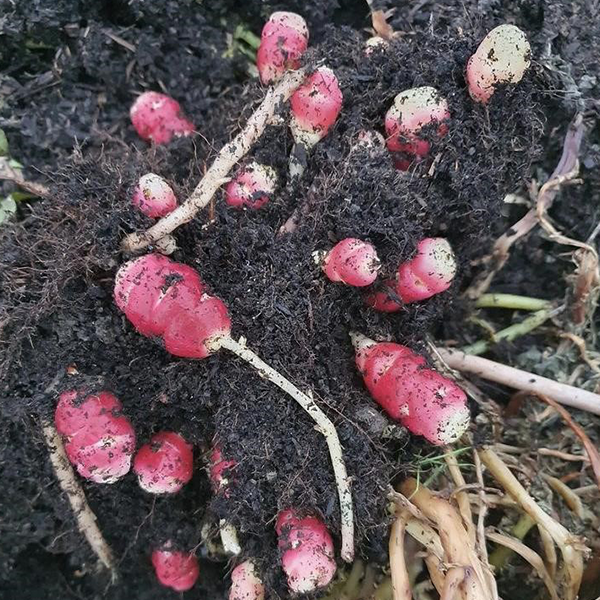
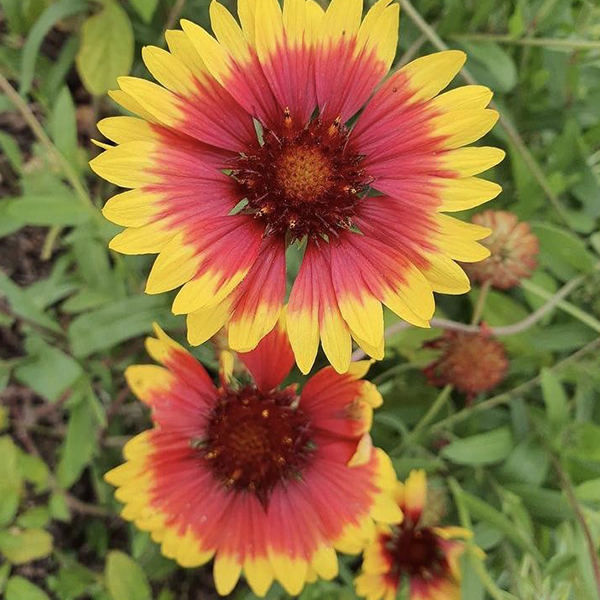

For years, peat has been a popular choice in gardening and horticulture, known for its ability to retain moisture and support plant growth. But as

At Coir Products by Salike®, we take pride in the quality of our products and the positive impact we make on the communities who help